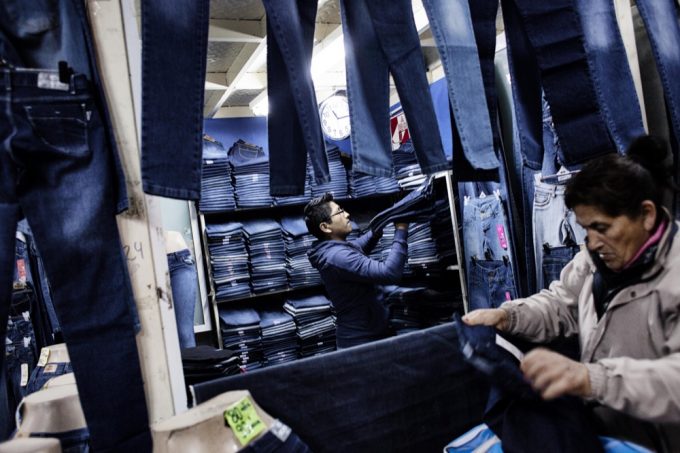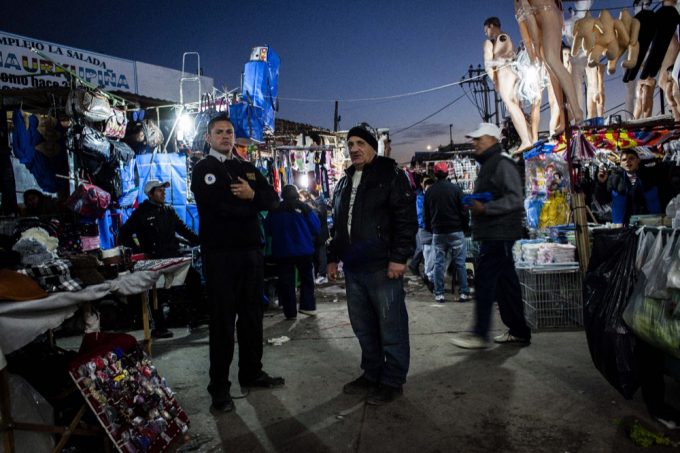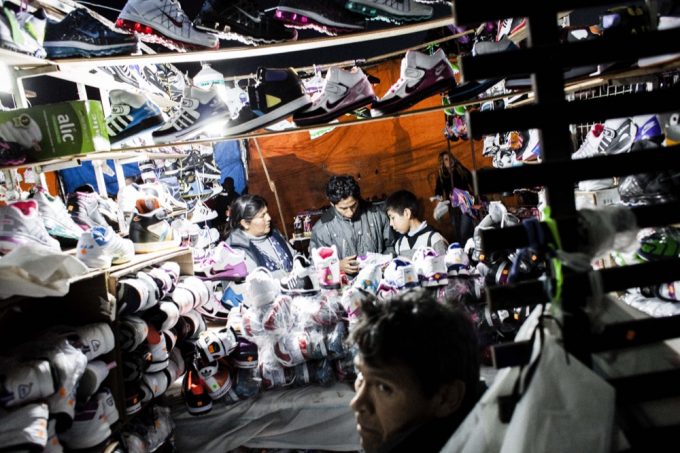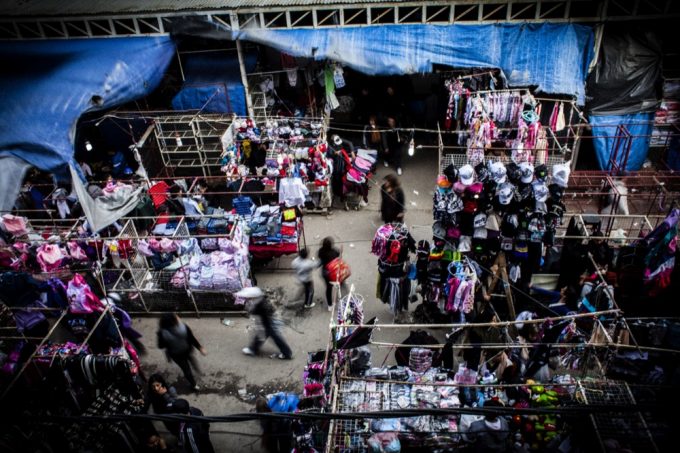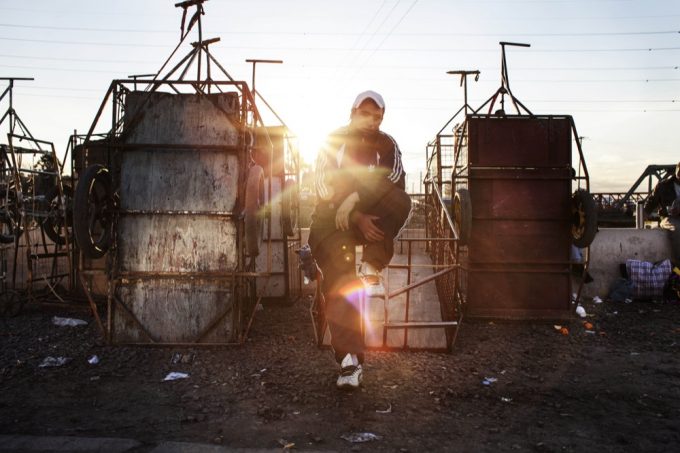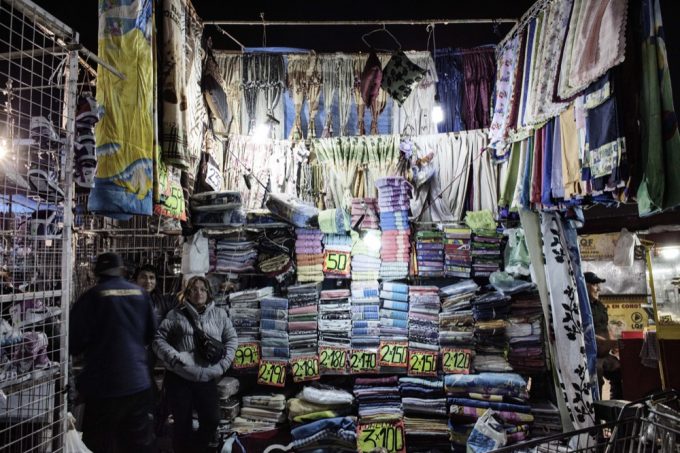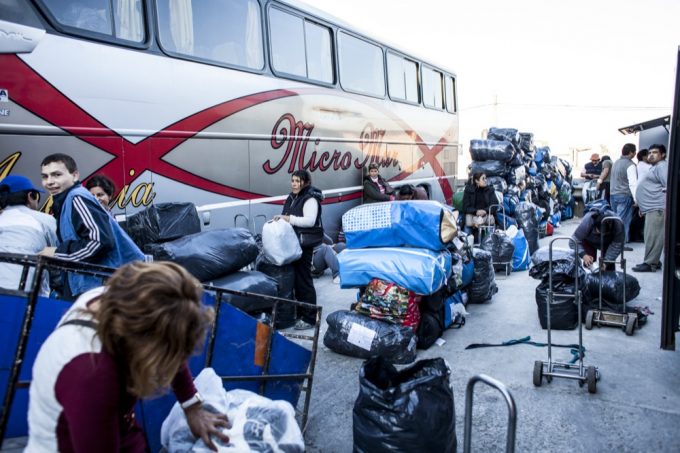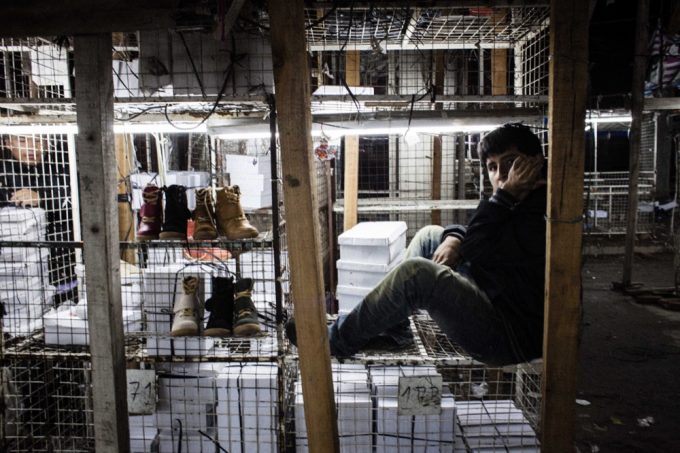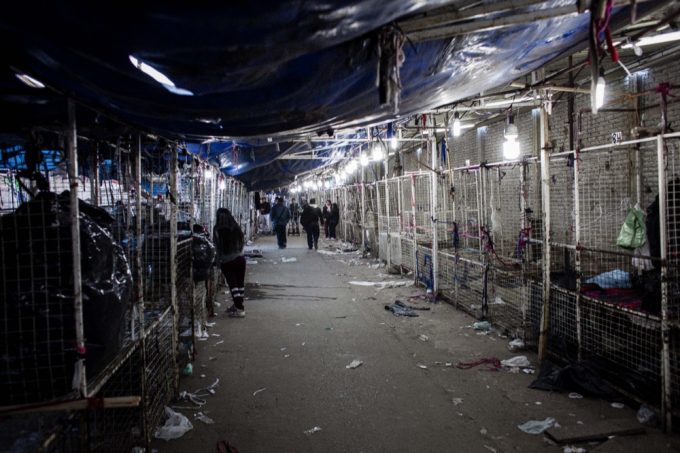Hope in the Sweatshops of Buenos Aires
We went into La Salada, Latin America’s largest marketplace for low-cost garments, with a clear idea of what the word “sweatshop” meant: deplorable working conditions, long hours, low pay, no benefits or job security. A desperate and dangerous way to get by. And it does mean that—the workers we interviewed and photographed (research supported by the Max Planck Institute for the Study of Societies) told us again and again about 16-hour days and 6-day weeks. The newspapers told us about fatal accidents, about sweatshops engulfed in flames. Yet the thousands of entrepreneurs, stallholders, and buyers who flock to Buenos Aires and think of La Salada as the “center of the world” were somehow possessed of an incredible, unflagging energy. We couldn’t work out where it came from.
Tony, a former member of the Argentine secret service and now one of the marketplace’s security managers, revealed its source when we asked him about the future of La Salada. His face lit up. La Salada might be a collection of basic industrial sheds and an open-air street market now, but one day it would have five floors. Its escalators, he continued, would look like those in the shopping malls of the rich, and La Salada would be an example of success for the whole country. La Salada’s frenetic activity was driven, it turned out, by hope. Tony was following the American Dream like anyone else—it just happened that his dream would be built through an informal and illegal market.
La Salada was also, we learned, the center of Pablo’s world. The son of Bolivian immigrants, he helps run the family clothing business, renting a stall at La Salada three days a week and spending another three days cutting and sewing in the sweatshop he runs from the family’s rented home. We spent several months getting to know Pablo before he allowed us to visit his workshop. Even then, we had to prove ourselves by completing a wild-goose chase around the city—we would be given an address, a taxi driver would raise his eyebrows and warn us to hide our jewelry, and then we would find out that we had been sent to a dead end. Eventually, satisfied that we were neither cops nor looking to tip off his rivals, Pablo gave us his real address.
The workshop turned out to be surprisingly well equipped, with several industrial sewing machines and modern workbenches laid out with neatly organized threads, scissors, and needles. Racks of clothing patterns hung along the peeling, damp-stained walls, and an old TV set displayed American cartoons dubbed in Spanish. Here, Pablo and his parents and siblings design their latest products, cut the patterns and fabric, and sew on the all-important counterfeit brand logos that their customers demand. Pablo describes himself as a slave to the market, a slave to the never-ending routine of selling, sewing, and coordinating with other sweatshops. But he is driven to wake each morning at 6am, sometimes having only finished selling at 1am, by the thought that one day his family might buy their own home. By selling counterfeit clothing manufactured in this illegal sweatshop, Pablo hopes to gain access to material wealth and social recognition.
This story is common: there are around 31,000 small home-sweatshops spread throughout Buenos Aires province. Some 8,000 entrepreneurs regularly rent a market stall at La Salada, a vast 18-hectare site in a crime-ridden neighborhood just beyond the Buenos Aires city limits. The marketplace rose from the ashes of Argentina’s garment industry, which had suffered an almost total collapse following radical transformations in the 1980s, when innovations in communications and technology, commercial agreements and neoliberal policies, migration flows, and cheaper transport decimated the sector and left thousands unemployed.
La Salada emerged as a beacon of hope for former garment workers. Today, it is Argentina’s foremost supply center for sweatshop-produced and counterfeit garments, the first link in a supply chain connecting producers like Pablo with buyers who travel hundreds of miles to purchase jeans and jackets, shoes and socks, and aprons and towels for resale in hundreds of towns and cities throughout Argentina and neighboring countries. The shopping malls that Tony is so keen to emulate have pushed clothing prices beyond what many Argentines can afford: La Salada offers hope to them, too.
Learn more at www.lasaladaproject.com.
